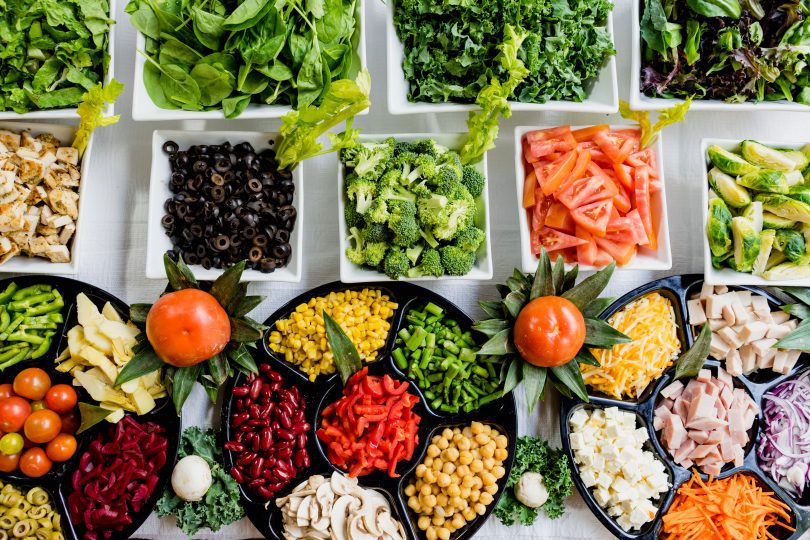Even the food (āhāras tv api) is (bhavati) dear (priyaḥ) to everyone (sarvasya) in three ways (tri-vidho). The same is true of sacrifices (yajñas), austerities (tapas), and charity (tathā dānaṁ). We should hear (śṛṇu) this (imaṁ) in terms of their (teṣāṁ) divisions (bhedam). (BG 17.7)
Foods (āhārāḥ) dear to those in the mode of goodness (sāttvika-priyāḥ) increase (vivardhanāḥ) the duration of life (āyuḥ–sattva), strength (balā), health (arogya), happiness (sukha) and satisfaction (prīti). Such foods are juicy (rasyāḥ), appealing (snigdhāḥ), lasting (sthirā), and pleasing to the heart (hṛdyā). (BG 17.8)
Foods that are bitter (kaṭv), sour (amla) salty (lavaṇa), too hot (ati-uṣṇa), pungent (tīkṣṇa), dry (rūkṣa), and burning (vidāhinaḥ) are dear (iṣṭā) to those in the mode of passion (āhārā rājasasya). Such foods offer (pradāḥ) distress (duḥkha), misery (śoka) and disease (amaya). (BG 17.9)
Food (bhojanaṁ) that is (yat) spoiled (yāta-yāmaṁ), tasteless (gata-rasaṁ), smelly, decomposed (pūti) and stale (paryuṣitaṁ ca), and even (api ca) that is left-over (ucchiṣṭam) and impure (amedhyaṁ) is dear to those in the mode of darkness (tāmasa-priyam). (BG 17.10)
The spoiled, smelly, and decomposed aspects of food that connote meat and fish products are enjoyed by those in the mode of ignorance. The pungent quality of food particularly present in onions and garlic is enjoyed by those in the mode of passion. On the other hand, strictly vegetarian food that is naturally pleasing to the heart is liked by those in the mode of goodness.
Thus, we like to eat certain kinds of food based on the acquired modes of material nature.







